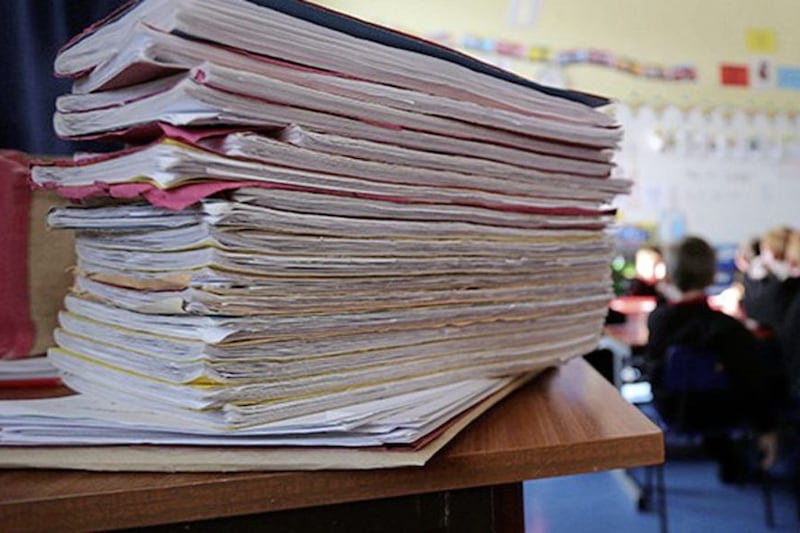A HUMAN Rights report warning 11-plus tests are damaging children's mental health has been welcomed by principals.
The new study which sought the views of pupils and teachers said academic selection was "harmful".
An unregulated system has operated for more than a decade with grammar schools using their own entrance exams.
A report from the Right to Education (R2E) group, facilitated by Participation and the Practice of Rights, said a system that raised some pupils up at the expense of others was cruel.
It also "shows wanton disregard to children's needs".
Children who took part in the research shared their experiences and told of not sleeping, loss of appetite, crying, anxiety, depression, and not attending school "for fear of a test".
Read More
- Ending 11-plus created rival testing groups
- Wealthier families most likely to disagree with 11-plus cancellation
- Simon Doyle: 11-plus exams for undersubscribed schools are pointless
Six out of every 10 pupils surveyed by the study said they believed the transfer test was bad for them, while 92 per cent of teachers felt the system had a significant negative impact on children's mental health.
A teacher who took part said what shocked her most was pupils crying, years after taking the exams, "talking about how they never felt good enough, their emotions were still raw".
"It was devastating to hear this and for me, indicated the damage this test had done. I wondered how years later it could still have such an impact. I think pupils never get over that early experience of feeling like a failure."
The Catholic Principals' Association said its members agreed with the findings.
"The compelling evidence emerging from areas which have moved away from academic selection affirms that all children are advantaged and none disadvantaged by this move," said secretary Carmel Dunn.
"However, this information continues to be ignored by these institutions who continue with academic selection. In those areas, parents have embraced the changes and all children have benefitted. Why if all children are evidently benefitting from this change are these schools allowed to continue this unregulated practice consequently preventing progress for all and damaging the mental, emotional and physical well-being of our children.
"At this time in education and society when there is a heightened focus on the emotional health and wellbeing of children and young people it is sad that the interests of individual institutions are considered more important than the needs of individual children - very many of these individual children have already been damaged by the rejection process of academic selection."
Coláiste Feirste principal Mícheál Mac Giolla Ghunna said the report made stark reading.
"It is of grave concern that so many young people are being harmed by the processes that are taking place in our education system. We fully support the young people and teachers involved, and we commit to help monitor the human rights impacts in our school and encourage others to do the same," he said.
"As a non-selective school Coláiste Feirste places equal value on every child, with proven excellent results."
Patrick Mercer, NASUWT representative at Belfast Model School for Girls, said the findings highlighted what almost every teacher and child knew.
"The transfer test is detrimental to children's health and well-being and has a long-lasting negative impact on confidence," he said.
"Why do we have an education system that is deliberately set up in a way that is harmful to children?
"Decision makers need to heed this research and listen to the children's stories now before another generation of pupils are needlessly damaged by the transfer test."
The Department of Education said it received a copy of the R2E report and would consider the findings.








